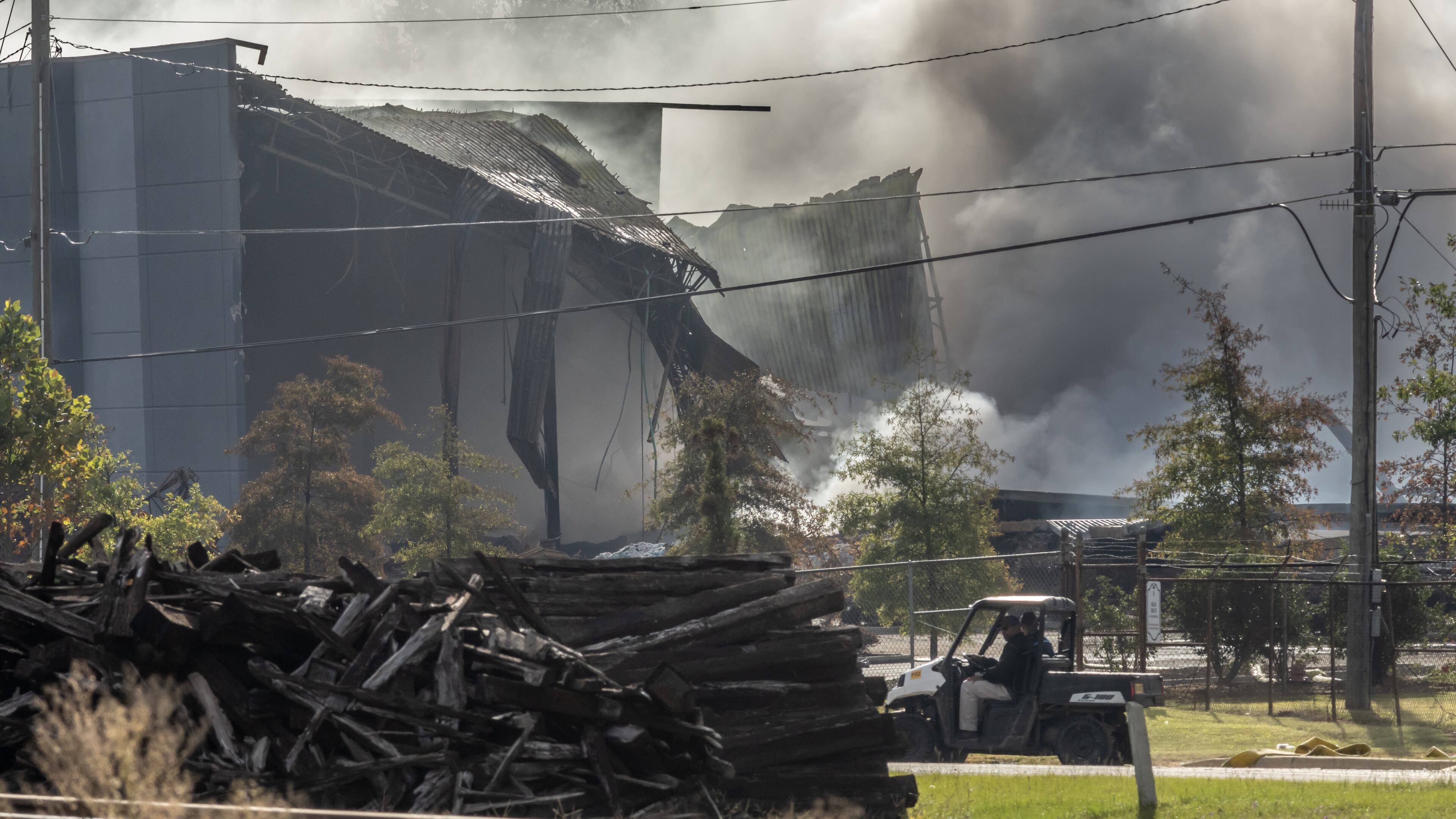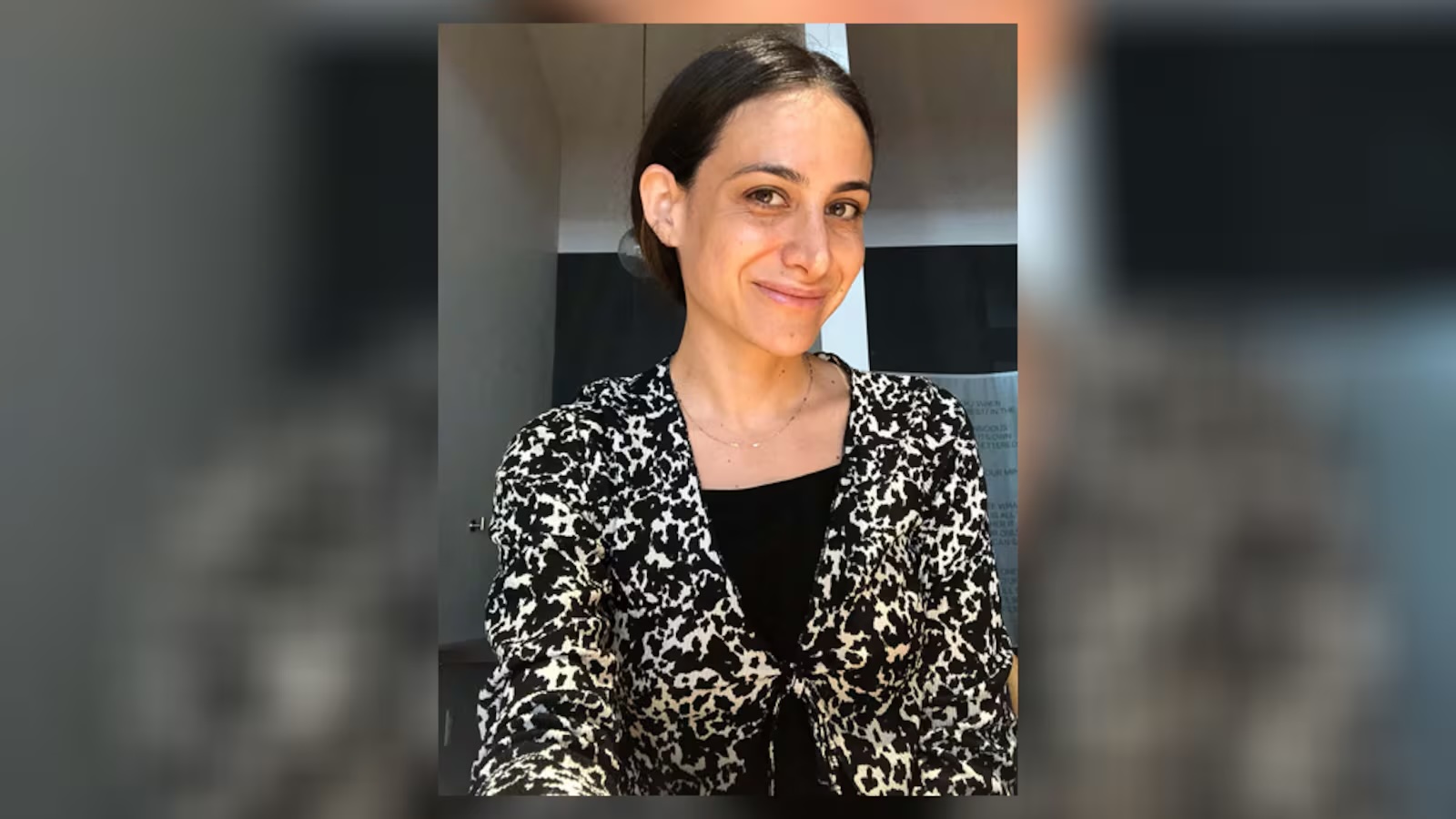Mixed messages mount in aftermath of fire at Conyers chemical plant

Rockdale County residents went to bed Monday night under the impression that a shelter-in-place order had been lifted following Sunday’s massive chemical fire at a local plant.
But come Tuesday morning, the news was less conclusive and notably confusing. The county’s 90,000 residents woke up to learn some were still in harm’s way, and the order was back on — at least for some.
Just before 4 a.m., Rockdale County’s government posted an announcement telling residents who see the chemical plume in their area to shelter in place.
“If the cloud moves over your vicinity, please shelter in place until the cloud moves out,” authorities said in a news release, walking back the communication from 7:45 p.m. Monday that lifted the order.
The vague directive, which put the onus on residents to determine what is safe, became the latest in a multiday response to a fire that started over the weekend at BioLab, a Conyers plant that treats pool and spa water.

The fire, which was caused by a malfunctioning sprinkler, resulted in the on-again-off-again-on-again shelter-in-place advisory, as well as an evacuation order for 17,000 residents living closest to the plant. It also prompted several road closures, including parts of I-20, and increased precautions in Atlanta and its surrounding suburbs Monday as a thick gray haze and the smell of chlorine made their way 20 miles west with the winds. The chemical that is causing the still-visible plume has not been identified.
Rockdale Emergency Management Agency Director Sharon Webb had made the decision to issue and lift the shelter-in-place advisories, based on information from the U.S. Environmental Protection Agency and Georgia Environmental Protection Division, county spokesperson Melisa Mims confirmed.
She declined to say why the county lifted the shelter-in-place order Monday night given the possibility that the winds could change direction.
“The smell will probably be there,” Mims told The Atlanta Journal-Constitution. “It’s up to each individual person because the contaminants are not at a level that Rockdale County deems harmful, or EPD.”
At a news conference Tuesday morning, Rockdale Board of Commissioners Chairman Oz Nesbitt tried to better explain the shifting orders, assuring residents that public health and safety were at the forefront of all decisions.
First responders went into the plant at around 1 a.m. Tuesday and had planned to remove some of the toxic product when they realized the “super sacks” that had been containing it had disintegrated, Nesbitt said. That discovery pushed back the response timeline.
Nesbitt said it could take the rest of the week for the incident to be completely resolved as the smoke plume undergoes a process called “off-gassing,” which is the release of volatile organic compounds and chemicals into the air.

The commissioner, who was first elected to the county board in 2009, also stressed that the conditions worsen at night, specifically with the wind, so that’s when a shelter-in-place is most critical.
He said people could move around outside during daylight hours, but that those with respiratory conditions were strongly encouraged to shelter during the day and night.
According to Dr. Lynn Paxton, the interim health director for the Gwinnett County, Newton County and Rockdale Health Center, those with preexisting conditions are most likely to develop symptoms from exposure. Residents in the area of the haze should stay indoors with closed windows and doors and turn off any HVAC system that can pull in outdoor air, said Paxton, who also noted that N-95 masks are unlikely to provide any benefit because the chlorine compounds are small and can get through the filter.
While Nesbitt made clear that the focus right now was safety for the community, he also stated that the county would be engaging in some tough conversations with BioLab, which has had a series of fires and chemical releases at its facilities in Georgia and elsewhere, an AJC review of state and federal records shows.
The company is part of Lawrenceville-based KIK Consumer Products, which has brands including Comet, Greased Lightning and Spic and Span. KIK acquired BioLab in 2013 to expand its pool and spa treatment business. BioLab has operated in Conyers since 1973, and incidents at the facility date back decades. Sunday’s fire is at least the fourth significant fire or chemical release from the Conyers plant in the past 20 years, according to those records.
“It’s almost like Groundhog Day. We’ve seen this before and before and it’s concerning,” said Nesbitt, explaining that there were questions about the internal and external operations of the company.
In a statement issued Monday evening, when the shelter-in-place order was first lifted, BioLab stated the company was grateful to first responders and federal authorities, and said its “top priority remains ensuring the community’s safety.”
BioLab had representatives at the news conference Tuesday but they did not speak or give further comment.
Officials in Atlanta and metro Atlanta released various statements over the past few days, with many noting they were aware of the issue and were conducting air-quality tests. None have said they’ve found worrisome results so far. Still, officials in Atlanta, Fulton County, Cobb County, Gwinnett County and DeKalb County are encouraging those with respiratory issues to stay inside.
The Environmental Equity Information Institute, a DeKalb-based nonprofit, however, said it had conducted its own testing and was alarmed by the findings.
“It took us all by surprise,” said its executive director, Louise Palmer, who explained that the group decided to use a custom-made, solar-powered air monitor to test the air quality outside and get a real-time reading of particulate matter pollution.
The group found rates of particulate matter 2.5 greater than the recommended EPA level of nine micrograms per cubic meter.
“We weren’t receiving any alerts at the time our monitors were showing these high levels, so that was very concerning for us,” she continued, saying that the organization’s immediate concern was with the communities most impacted by the fire. She suggested officials protect vulnerable communities by setting up what she called “community resilience centers” equipped with adequate ventilation if they lacked the means to protect themselves inside their homes.
As the region grapples with testing and messaging around the chemical fire, some environmental advocates are trying to push the conversation forward.
On Monday, Environment Georgia released a news release pushing for tighter regulations around companies, like BioLab, which have had issues in the past.
“The repeated fires at this facility raise important concerns that require action,” Jennette Gayer, state director of Environment Georgia, said.
Gayer pushed for the Georgia General Assembly to reintroduce, strengthen and pass a “Bad Actor” bill that was introduced by state Rep. Rick Townsend this year but never received a hearing. The bill would have blocked companies with histories of mistakes from receiving operating permits in the state.
“This kind of toxic exposure is not acceptable,” Gayer continued.
For those in Conyers, the repercussions of the “toxic exposure” are already starting to cause concern.
On Tuesday morning, a school-aged patient checked in to Conyers Pediatrics, just a couple of miles away from the BioLab facility.
The child, who was born prematurely and suffers from a chronic lung condition, was particularly vulnerable to polluted air. They were seen for coughing and burning eyes, symptoms related to exposure to the chemicals.
“It’s infuriating, especially since this has happened several times before,” Dr. Hugo Scornik, a pediatrician with the practice, wrote via text.
While Sconik, who has led the American Academy of Pediatrics’ Georgia chapter, said he believed the child would be fine, he still reiterated that the concerns are real.
“This has affected numerous vulnerable children and adults in this area. Lots of concerns, as well as from pregnant mothers,” he said. “You can still smell it in the air.”
— Staff writers Matt Reynolds, Kelly Yamanouchi, Helena Oliviero and Alia Pharr contributed to this article.



